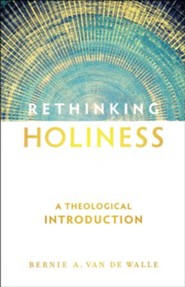
Why does the Church give the authority that it does to the Scriptures?
Historically, the Church has acknowledged the central authority of the Scriptures for its faith and practice but the question, “Why?” is a good one. If the Church cannot answer this question well, it not only undermines its own reputation but that of the Scriptures as well.
Authority, of any type, comes in two different kinds. The first is that kind of authority which is based on the character and/or credentials of the one making a statement or performing an action. That is, that which gives a particular statement or action authority does not reside in the nature of the statement or action itself but on the character and qualifications of the person doing the speaking or acting. This is extrinsic authority. In this case, if you accept a statement or action as true or binding, it is not because the statement itself has convinced you of its own truthfulness or rightness. Rather, it is considered authoritative because the person making the statement or performing the action is obviously qualified to make it. As an example, if you are sick, you may go to a doctor. He/she may then diagnose your condition, tell you what is wrong, and prescribe some remedy. Chances are that you are quite unable and unqualified to judge for yourself whether his diagnosis is correct or whether his/her prescription is likely to work. Yet, because of his/her medical credentials, you consider his/her diagnosis authoritative and follow the prescription.

The second kind of authority is that which is linked to the content of the statement or action itself. This is called intrinsic authority. Authority, in this case, comes from the rightness or reasonableness of the statement or action in and of itself, apart from who it may be associated with. To carry on the medical example, if someone, other than a doctor, were to observe you and saw the poor state of health that you were in, knew that you had been under great deals of stress and had been overworking, and told you that you would feel better if you took a much deserved vacation, you might find this diagnosis and prescription authoritative because you can see the reasonableness of both the diagnosis and the prescription, be convinced by them, and follow them. You are not necessarily impressed by the credentials of the one who was observing you but you see the reasonableness of the diagnosis and prescription itself. The character of the statement itself, apart from the one who made it, calls you to adhere to it.
The Church has long recognized Scripture’s authority because it is convinced that it possesses both extrinsic and intrinsic reasons to do so.
Extrinsically, Scripture is authoritative because it is the word of God himself. Through an action called inspiration, the Holy Spirit so influenced the human authors of Scripture that what they wrote were the very words of God. Consequently, Scripture has authority because of the character and credentials of the God who is its author. His goodness, holiness, and all-knowingness (to name just a few of his characteristics) give authority to what he says. Also, as the one who has created and sustains the universe and everything in it, God speaks with authority over that which depends on him for its very existence, for both those who acknowledge his claim and those who do not.
Intrinsically, Scripture is authoritative because of what it is in and of itself—its own character. A great deal of the reason why the Church has recognized Scripture’s authority is based on Scripture’s having proven itself to be a sensible assessment of the state of the world. Furthermore, Scripture has not only shown itself to be sensible, it also has a long history of accuracy. It has proven to be inerrant. That is, in all that it affirms, Scripture has shown itself to be without error. As such, it is binding on all reasonable beings, Christians and non-Christians alike.
The Church’s assertion of Scripture’s authority is built upon both extrinsic and intrinsic grounds and stands strongest when these two aspects are held together. While each has a strength of its own, the reason that the Church has given the authority that it does to the Scriptures comes from the overwhelming power of this one-two punch.




